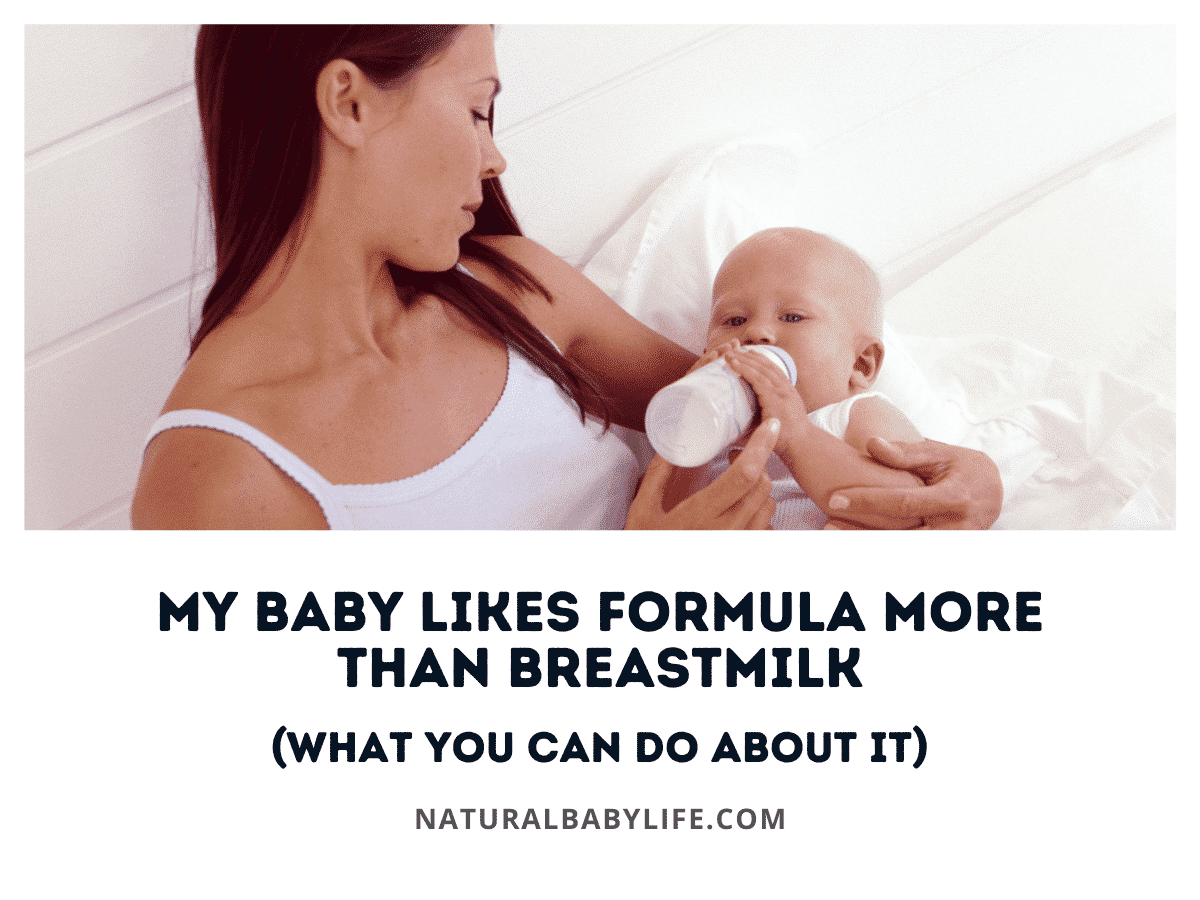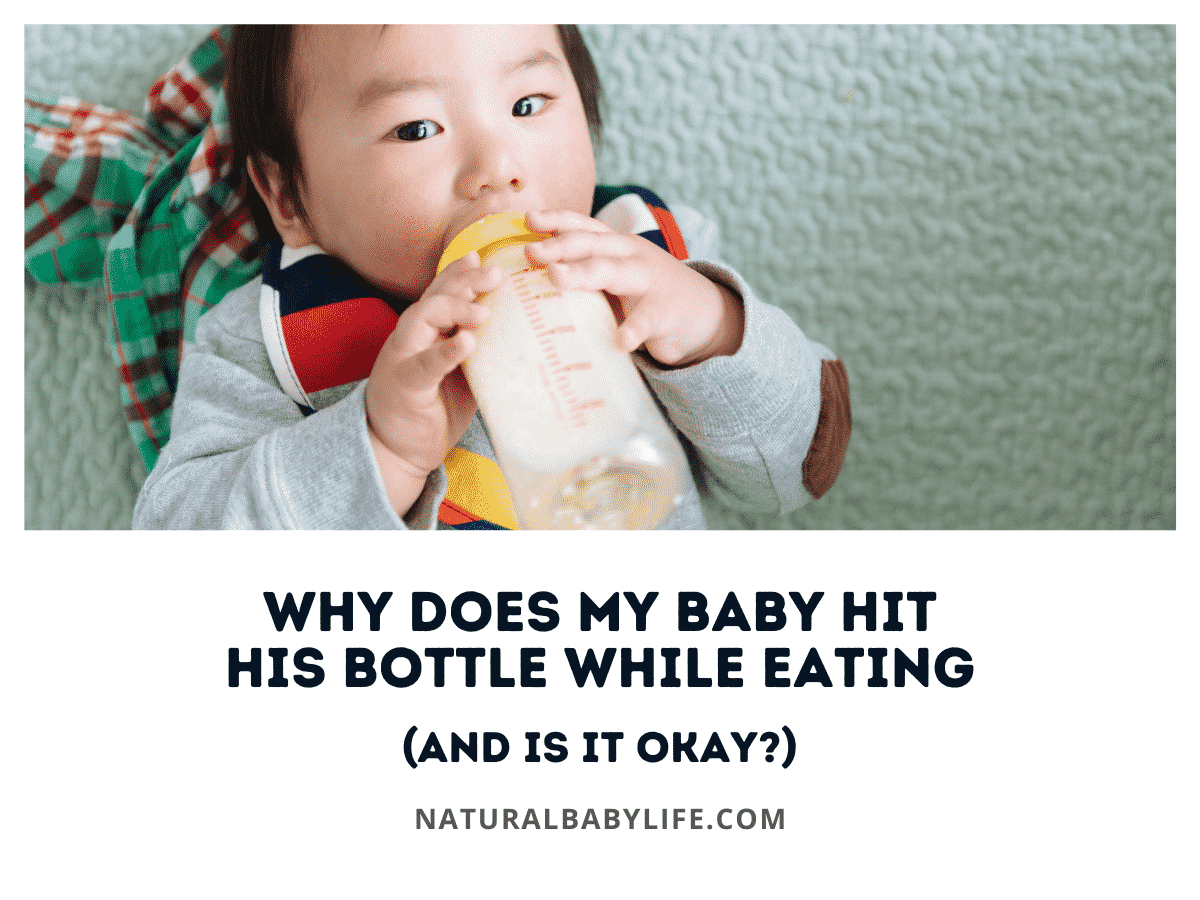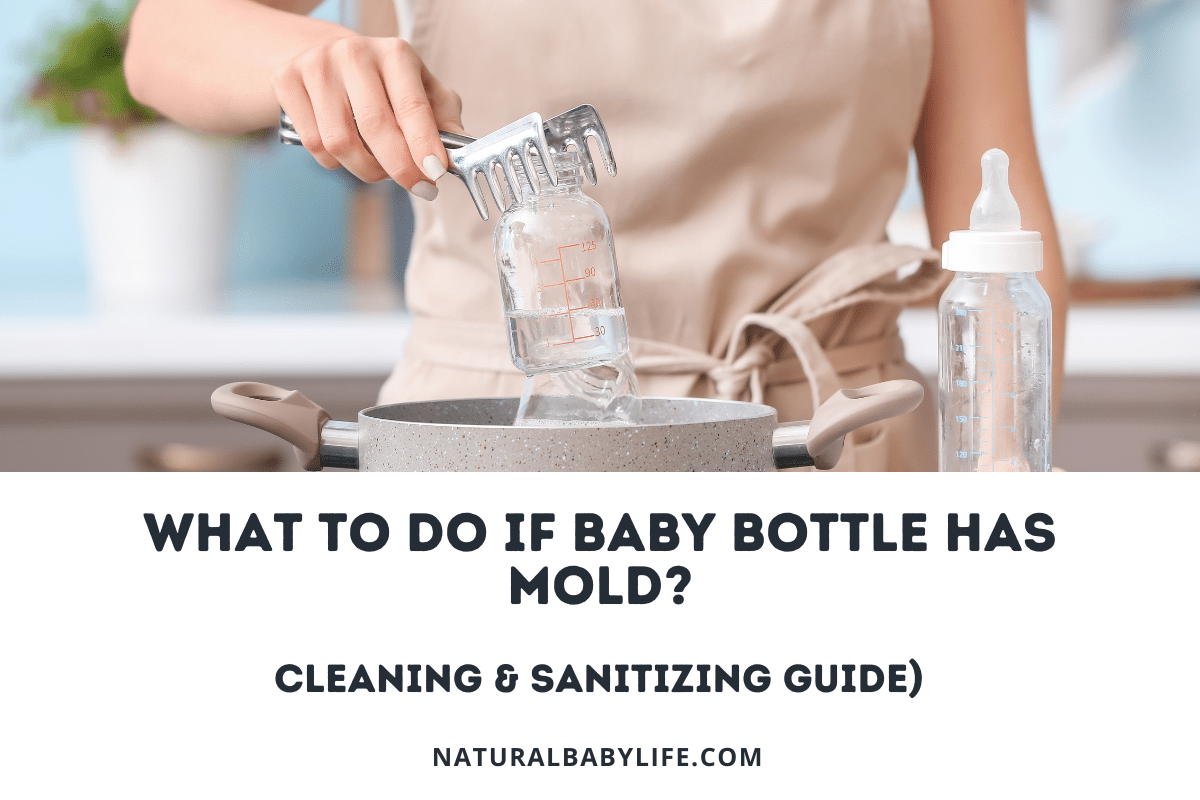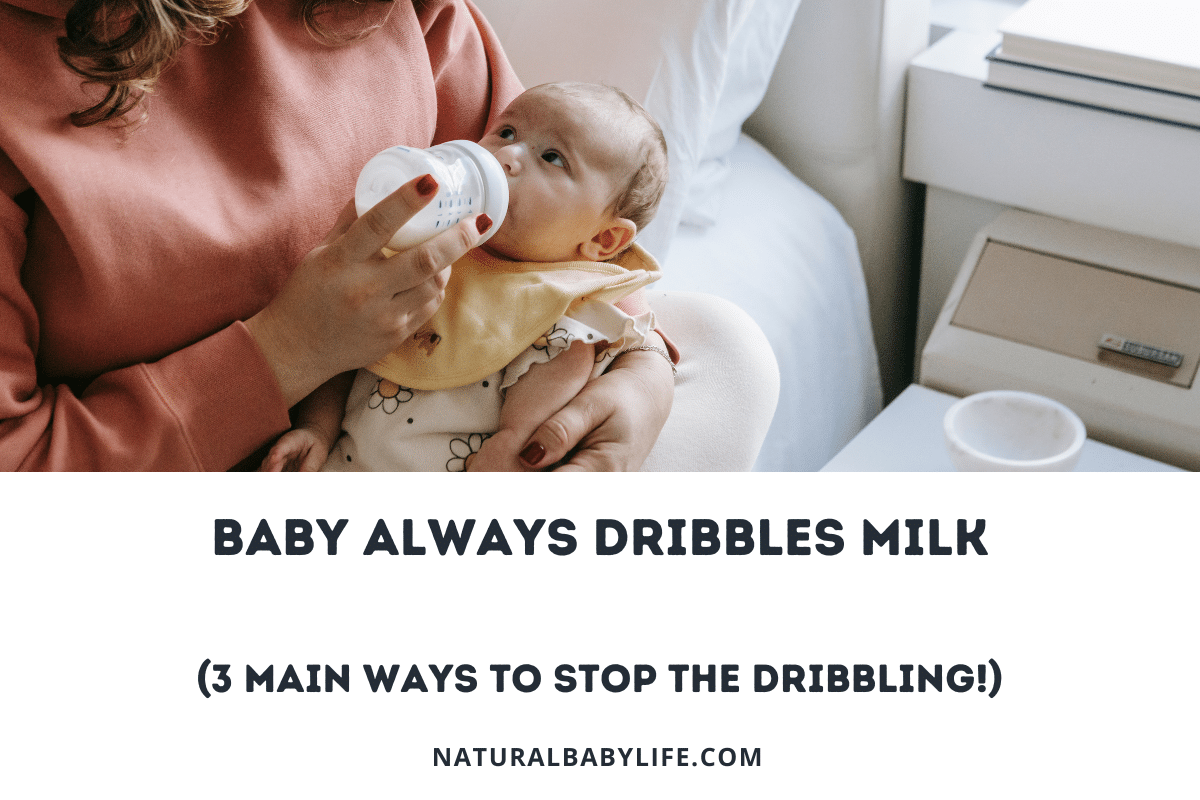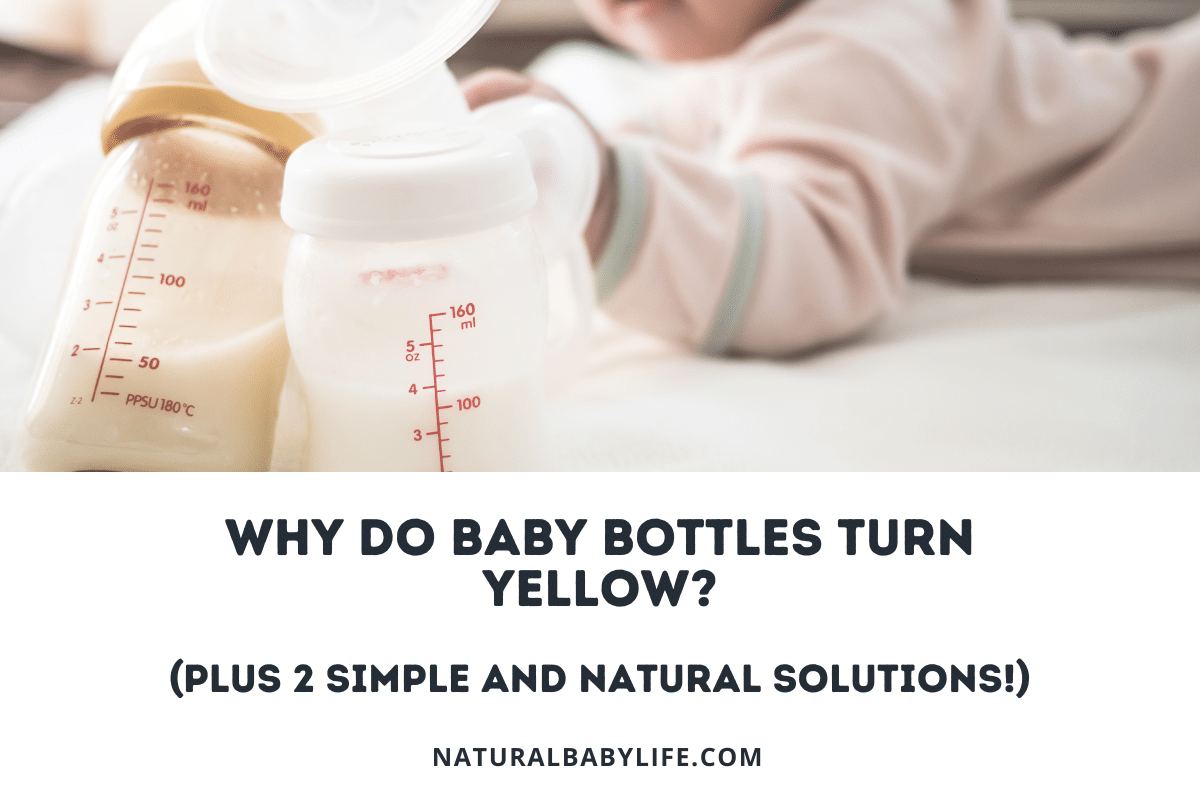Breastmilk is a perfectly balanced source of nutrients that provides a multitude of health benefits to babies. Even for women who plan on exclusively breastfeeding, formula is sometimes used to supplement their supply. What happens if your baby prefers formula over your breastmilk?
Experts recommend that babies be fed breastmilk exclusively for the first six months, but many parents find themselves needing to supplement with formula. Unfortunately, your baby may prefer the formula because it is sweeter and easier than nursing. In that case, you may want to consider pumping and giving your baby breastmilk through a bottle.
Read on to learn more about the differences between breastmilk and formula, why a baby would prefer formula over breastmilk, and what to do if you want to breastfeed your formula-loving baby.
Table of Contents
Why does my baby prefer formula to breastmilk?
Although doctors and mothers alike consider breastfeeding the “gold standard,” your baby may not have the same opinion and actually prefer a bottle of formula to nursing.
If you are trying to determine why your baby prefers formula over breastmilk, comparing their ability to nurse and bottle-feed is a good place to start.
If your baby is fussy while nursing but takes a bottle efficiently, the act of nursing might be what is causing their aversion. You can take steps to make nursing more enjoyable, such as trying different positions, creating a more restful environment, and assessing your milk supply and flow. Ultimately, if your baby loves the ease of eating from a bottle, offering breastmilk from a bottle is a great way to provide them with the best source of nutrients while accommodating their preferences.
If your baby rejects your breastmilk from the breast and bottle, evaluate your diet and medication to find the source of this distaste. Though certain food and medications can affect the smell and taste of your breastmilk, allergies and intolerances can also cause your baby to refuse breastmilk. If you are considering an elimination diet or suspect your baby has an allergy or intolerance, consult a lactation specialist or pediatrician.
How are breastmilk and formula different?
Baby formula was developed to be a substitute for breastmilk and mimics the nutritional benefits of mother’s milk as closely as possible, but there are still significant differences between the two.
Breastmilk is much more complex than formula, and studies have shown that breastmilk can have significant health benefits in most babies, although some babies – particularly those with lactose allergies or severe reflux – can benefit greatly from specialized formula. Breastmilk is easier for babies to digest which can mean less gas, but it also means that babies tend to be hungry more often so formula-fed babies tend to sleep through the night earlier.
Economically, breastmilk is less expensive to produce since it’s a natural output of mom’s healthy diet, but pumping and storing expressed breastmilk can significantly add to the cost of feeding your little one.
Health benefits
Though formula is the best alternative to breastmilk, it is unable to mimic the many health benefits provided by breastmilk.
Breastmilk is made up of over 1,000 proteins, and its complexities are not fully understood. This makes producing a comparable alternative difficult.
Breastmilk can have the following positive effects on your baby:
- Promotes brain and nervous system growth associated with higher IQ’s
- Promotes good eyesight
- Prevents infections and hospitalization
- Reduces the risk of other conditions
- Sudden Infant Death Syndrome (SIDS)
- Asthma and allergies
- Digestions issues
- Leukemia
- Obesity and diabetes
Though breastmilk is widely regarded as the “gold standard” for infant nutrition, formula can be a healthy alternative for many babies, including:
- Babies whose mothers cannot or choose not to breastfeed.
- Babies with allergies to mother’s milk.
- Babies diagnosed with galactosemia.
- Babies whose mothers have transmittable viruses, such as HIV.
Digestion
Breastmilk contains enzymes that assist in breaking down breastmilk. Breastmilk also contains more whey than casein until about 6 months of age; whereas formula has equal amounts of whey and casein.
This means that breastmilk is digested more easily than formula.
According to the New York Times, breastmilk contains some sugars that cannot be digested. Even though these sugars are not digested, they are biologically significant. These sugars help to build a healthy gut biome in babies.
Sleep
Because breastmilk is more easily digested, babies that are breastfed wake up more often through the night due to hunger.
Babies who are formula-fed often sleep better through the night.
This difference is most apparent in the first nine months.
Cost
There is a significant cost disparity when comparing nursing to formula feeding. Formula feeding your baby can be a massive expense and can cost around $3300 annually. That is six times more than the average cost of diapers.
Breastfeeding is significantly cheaper than formula feeding your baby, although that can change if you are doing anything other than breastfeeding exclusively.
The cost of a lactation consultant, breast pump, and other accessories can add up. Additionally, when you factor in the time and effort it takes to nurse, pump, and maintain your supply, breastfeeding can end up being just as costly, especially for working women.
Is breastmilk better than formula?
The CDC and most other experts recommend that infants be breastfed when possible.
While it may not be the best choice (or even possible), there are significant health benefits for both mother and baby.
Breastmilk reduces the risk of the following adverse health events in infants:
- Asthma
- Type-1 diabetes
- Obesity
- Ear infections
- Respiratory disease
- Sudden Infant Death Syndrome (SIDS)
- Gastrointestinal infections
- Necrotizing enterocolitis (NEC) in preterm infants
Other advantages of breastfeeding include:
- Breastmilk is easily digested and absorbed.
- Breastmilk is perfectly nutritionally balanced.
- Babies regulate their consumption when nursing.
- Antibodies in breastmilk impart passive immunity.
- When nursing, breastmilk is the perfect temperature and available at any moment.
- Nursing releases oxytocin, a hormone that promotes bonding.
Though most healthcare professionals agree “breast is best,” hospitals that push breastfeeding might be counterproductive. While breastfeeding should be encouraged, it should never be forced. Formula can be a healthy alternative for mothers who cannot or choose not to breastfeed.
Here are some benefits of formula-feeding:
- Anyone can prepare and feed a baby formula.
- Mothers do not have to go through the pain that is common in early breastfeeding.
- Mothers are not on a strict nursing or pumping schedule (to maintain supply and prevent engorgement).
- Mothers do not need to worry about taking medications.
- Formula options are available for babies with food allergies.
Why would baby prefer formula to breastmilk?
Women who are breastfeeding, but supplementing their supply with formula, sometimes find that their baby prefers the formula to breastmilk.
A baby may prefer formula because of:
- Taste – The taste of breastmilk changes based on the mother’s diet, whereas the taste of formula should not vary. Some babies prefer the taste of formula because it is more consistent. Others might actively dislike the taste of their mother’s milk because of foods like garlic, Brussels sprouts, and spices.
- Ease of bottle-feeding – When a baby is nursing, they are having to work for their meal. Though it might not seem strenuous, nursing can take a lot of energy, especially for inefficient eaters. When bottle-fed, babies exert much less energy because formula flows out of bottles more readily.
Why would baby reject breastfeeding for formula?
Though nursing can be very a special time for mother-baby bonding, it doesn’t always come easily.
Some babies will happily take breastmilk from a bottle, but they struggle to nurse, either because they are distracted or can’t focus on eating, they might be uncomfortable or in pain, or even because mom has changed her bodywash and smells different.
It’s easier to create a distraction-free and consistent situation with bottle-feeding, and sometimes babies are drawn to that sense of order.
Distraction
Nursing requires time and effort from your baby.
If you are nursing your baby in a distracting environment, it can be difficult for them to focus on eating.
It is best to nurse your baby in environments that are quiet and restful.
Pain/Discomfort
If a baby is uncomfortable or in pain while nursing, it is hard to have a successful feeding session.
Here are some reasons a baby could be in pain or discomfort:
- A forceful milk letdown
- Overly hungry
- Upset stomach
- Thrush
- Reflux
- Lactose intolerance
- Food allergies
- Other disorders, such as galactosemia
Change in mom’s scent or taste
The taste and scent of your breastmilk can vary depending on the foods and medications you are consuming.
Babies are accustomed to their mother’s scent. Especially in the beginning, you should avoid wearing perfumes or scented bodycare products. If your baby does not recognize your scent, they may have difficulty nursing.
Certain tastes and odors can be offputting to your baby, and the deviation from your milk’s familiar scent and taste can confuse them.
Reduced supply
If your milk supply is low, your baby may not be getting enough breastmilk.
Not being able to get enough food or having to work extra hard for no more reward can lead to your baby being frustrated and not wanting to nurse when they know the bottle is available.
If you are not pumping, it can be hard to know whether you are in short supply. Feeling your milk letdown and hearing or feeling your baby swallow can be reassuring. However, if your baby does not seem satiated after nursing, is not gaining weight, or is not going through the expected amount of diapers, consult a breastfeeding specialist or lactation consultant.
Getting baby to take breastmilk instead of formula
If you can figure out why your baby is rejecting your breastmilk in favor of formula, you can make adjustments to get them back on the breast. Here are some things to consider:
- Offer breast milk from a bottle if your baby prefers the ease of bottle-feeding. This can also be helpful for babies who deal with discomfort or pain while nursing.
- Assess your diet and medications to determine if you are ingesting something that your baby could be intolerant or allergic to or that could be causing your milk to taste or smell differently. If possible, consult your doctor, and eliminate potentially problematic foods and medications.
- Use unscented bodycare products so that the scent of you and your milk is not masked.
- Carefully mix formula and breastmilk if your baby prefers the taste of formula. Slowly decrease the amount of formula until they are exclusively drinking breastmilk. Keep in mind that mixing concentrated formula with breastmilk can lead to overconcentrated nutrients. For more information on mixing breastmilk and formula, check out this post.
- Consult a lactation specialist if you think you could be struggling with low milk supply.

